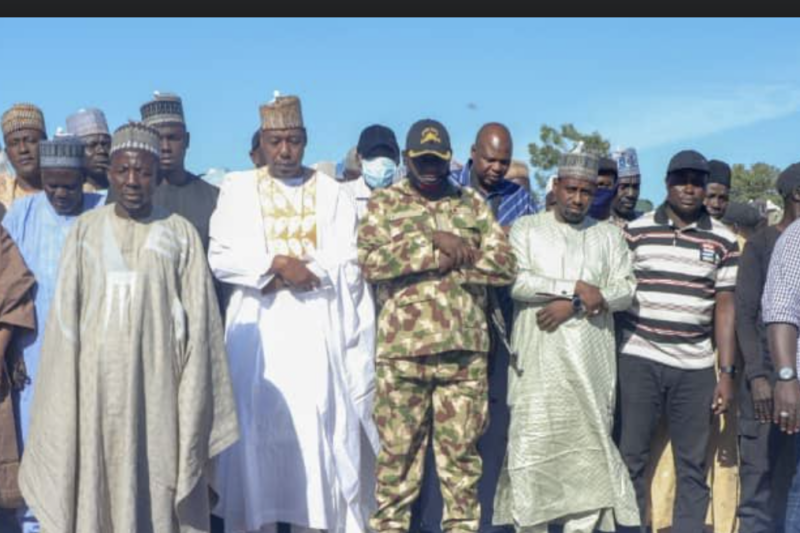Farmers and firewood collectors say they live in constant fear and are too frightened to go to their lands or the forest because of the many attacks by insurgents.
At least 13 rice farmers have been murdered by insurgents – thought to be members of the Jamā’at Ahl as-Sunnah lid-Da’way Wa’l-Jihād (JAS) – in villages close to Zabarmari town in the Mafa Local Government Area of Borno State.
A civilian joint task force (CJTF) member, who asked to remain anonymous, told RNI the attack occurred in the afternoon on Sunday, November 5, while the farmers were harvesting their crops.
He said a survivor had told him that even though the insurgents were carrying guns and were heavily armed, they had not shot the farmers. Instead, they strangled two of them and stabbed the other 10. After the killings, the insurgents dumped the corpses into a ditch.
Three farmers were severely wounded in the attack, one of whom died in hospital.
The CJTF member said the escalation in the number of farmer killings by insurgents was continuing despite the Borno State government having employed more task force members and agro-rangers to escort and protect farmers on their lands from 8am to 5pm every day.
He said the farmers had been buried according to Islamic rites.
CJTF members and soldiers heard about the attack on Sunday night and immediately began searching for the farmers.
It was during the search that they found the three wounded farmers and the 12 corpses.
“Sadly, one of the wounded farmers could not be saved and he died in hospital,” the CJTF member said.
The search was ongoing for more farmers who were still missing.
Abubakar Mohammed, a resident of Zabarmari town, said that one of his friends, Abdullahi, was among the rice farmers who were murdered.
“Abdullahi was a brave young man who always used to say that he would never allow insurgents to steal his farm produce even it meant he would die in the process. And that is precisely what happened. It is extremely shocking.”
Bukar Modu, also a resident of the town, said the rice farmers who were murdered were young – in their 20s – and most of them were the breadwinners of their families.
“I don’t know how their families will manage without their loved ones.”
The killings took place in the Kartuta, Koshebe and Bulabulin villages of Zabarmari.
A survivor, who also asked to remain anonymous, said the residents of Zabarmari were in mourning.
“All of us are also extremely frightened. These attacks by insurgents are making us too scared to go to our lands. We don’t know who will be killed next. We also don’t know if the missing farmers are dead or alive. Just the 12 corpses were found. There could be far more.”
In a separate attack on Monday, November 6, in the Kalwa village of the Monguno Local Government Area, at least 10 people were killed by insurgents, also thought to be JAS fighters.
Most of the people were travellers who had gone to the forest to fetch firewood to make charcoal.
Mohammed Bukar Shehu, a resident of Monguno town, told RNI that it was normal for people from the Fulani tribe to travel to the nearby forests between the Kalwa and Bederi villages to collect firewood to make charcoal.
Two people, who narrowly escaped the attack, said as soon as the insurgents arrived they opened fire, instantly gunning down seven people. Three others were shot dead as they were running for their lives.
Shettima Maidugu, also from Monguno town, said the insurgents had burnt down two commercial vehicles belonging to the victims and they left with three cars that were full of people.
He said 10 corpses were found at the scene. Many people are still missing. It was not known how many people were in the cars.
He said the government needed to do someing about the escalating attacks by insurgents. This was particularly important at this time when farmers had to harvest their crops.
“The farmers in the area don’t want to go to their lands because it is so dangerous but if they can’t pick their harvest they will have nothing to sell at the market and their families will starve. And many people need to fetch firewood because it is the only way for them to make a living. People are hungry and the cost of living is just going up. We are all struggling. And now we’re all living in fear because we don’t know when the insurgents will strike again.”
SHETTIMA LAWAN MONGUNO






